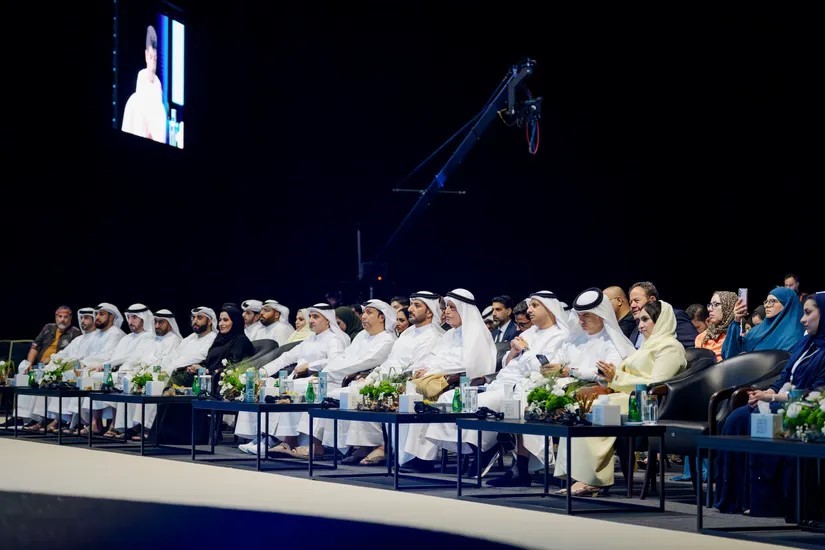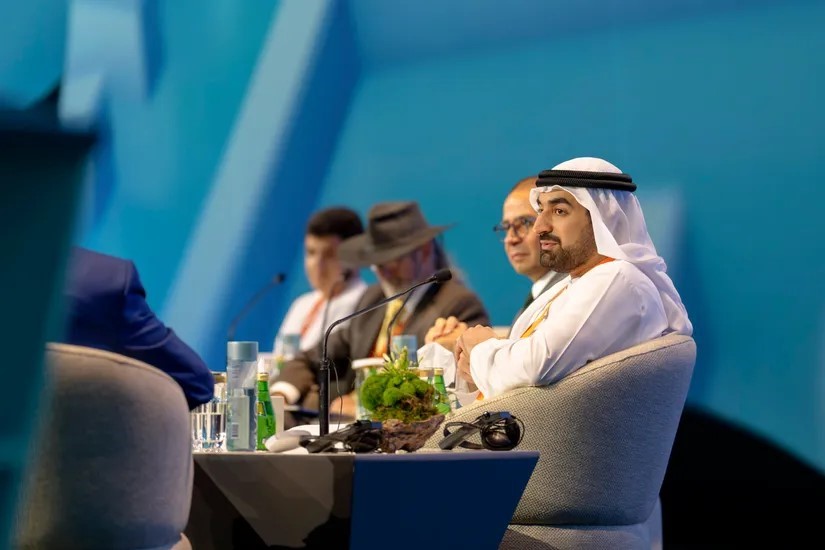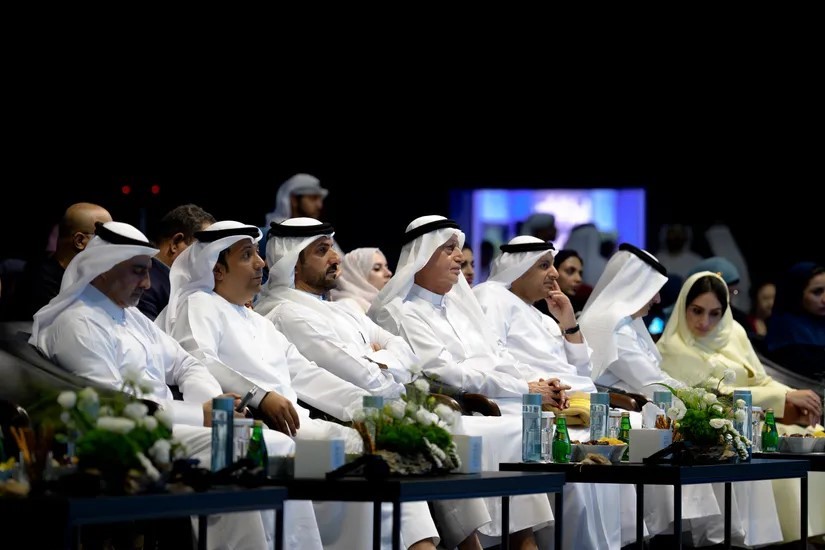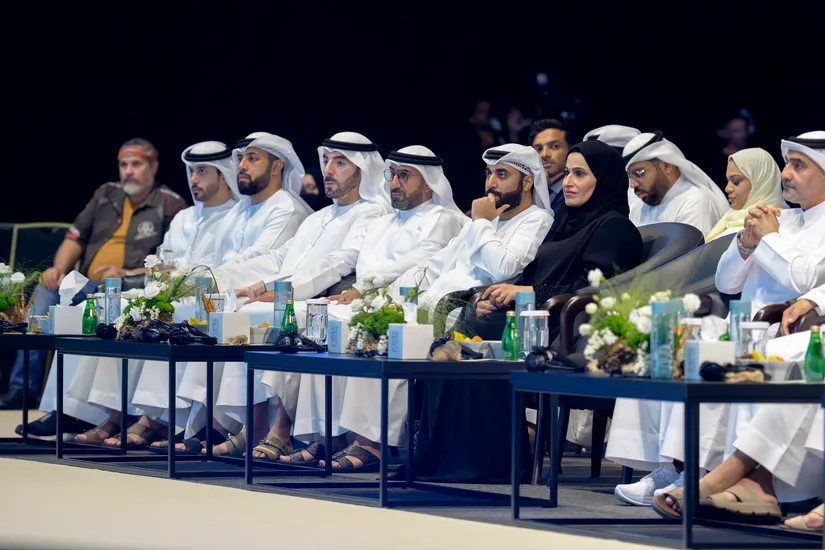His Highness Sheikh Sultan bin Ahmed bin Sultan Al Qasimi, Deputy Ruler of Sharjah and Chairman of the Sharjah Media Council, attended on Wednesday afternoon a session titled “How to Transition into Smart and Sustainable Cities”, held as part of the 14th edition of the International Government Communication Forum (IGCF) in Sharjah.
اضافة اعلان




The session, organized in collaboration with Invest Bank, featured Sheikh Saud bin Sultan bin Mohammed Al Qasimi, Director-General of Sharjah Digital Office; Sherif Tawfik, Head of Private Sector Partnerships for Artificial Intelligence and Sovereign Cloud at Microsoft; Gary Burniske, Managing Director of the Purdue Center for Global Food Security; and student Ryan Bousleimi, winner of the International Olympiad in Artificial Intelligence.
Sheikh Saud bin Sultan Al Qasimi emphasized that building smart cities relies on strong partnerships between the public and private sectors, with governments setting the vision and innovation and talent providing the added value needed to achieve it. He explained that Sharjah draws on global experiences in this field to enhance growth and development, noting that the success of smart cities depends on data availability and integrated efforts among various entities rather than on individual or delayed initiatives.
The Director-General of Sharjah Digital Office pointed out that the emirate has established one of the largest partnerships with technology companies, as governments alone cannot accomplish this mission. He stressed that smart cities, with their rapid growth, must meet people’s needs through well-researched studies that consider their daily priorities.
Sherif Tawfik stated that the world is now living in the era of artificial intelligence, following previous industrial revolutions, adding that this technology can provide effective solutions to societal challenges. He noted that technological shifts will naturally impact jobs, as with every past industrial revolution, but the focus should be on the quality and type of new jobs created.
He also stressed the importance of studying climate change and its direct impact on food security and rising temperatures, highlighting international examples of using AI to reduce energy and fuel consumption in food production. He referred to Microsoft’s commitment to achieving zero waste and cutting emissions by investing USD 10 billion in renewable energy projects, in addition to initiating the use of nuclear energy in data centers.
Gary Burniske underlined the importance of artificial intelligence in supporting food security by boosting local production, developing import systems, and ensuring supply chain stability. He recalled the difficulties in securing food during the COVID-19 pandemic due to supply chain disruptions, noting that technology can enhance production and control environmental conditions. He proposed strengthening infrastructure resilience, expanding monitoring capabilities through smart platforms, and integrating modern technologies into city systems to better withstand global changes.
Student Ryan Bousleimi, winner of the International Olympiad in Artificial Intelligence, called for creating an open data platform to support sustainability plans. He emphasized the importance of simulation models in developing smart city infrastructure, explaining that addressing challenges requires gradually solving smaller issues through data analysis and learning from global experiences. He also pointed out that enhancing food security requires developing agricultural processes, rationalizing water consumption, providing energy, and reducing food waste.
Specialists and experts in smart cities and artificial intelligence highlighted the importance of public-private partnerships in building sustainable cities based on government vision and corporate innovation. They stressed the need to expand reliance on AI technologies to deliver advanced services that meet expectations, reduce energy consumption, and enhance food security.
Attending the session alongside His Highness were Sheikh Eng. Mohammed bin Abdullah bin Majid Al Qasimi, Director of the Department of Municipal Affairs; Salem Ali Al Muhairi, Chairman of the Sharjah Municipal Council; Tariq Saeed Allay, Director-General of Sharjah Government Media Bureau; Lamiya Obaid Al Hosani, Director of Sharjah Digital Office; Ahmed Obaid Al Qaseer, CEO of Sharjah Investment and Development Authority (Shurooq); Rashid Ali Al Ali, CEO of Sharjah Communication Technologies Authority; along with several officials and media representatives.



